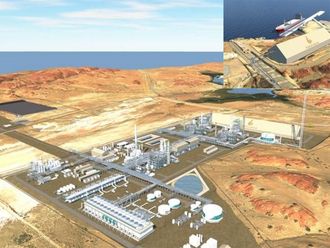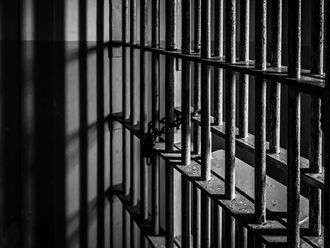Kiev: President Petro Poroshenko on Monday turned to the popular head of Ukraine’s front line forces in his search for a defence minister ahead of a crunch general election and high-stakes talks with Russia.
The pro-Western leader asked National Guard irregular forces commander Stepan Poltorak to become Ukraine’s fourth defence minister since Russia’s seizure of Crimea in March and subsequent separatist uprising in the east.
“I talked to the generals and met regular soldiers, battalion commanders,” Poroshenko told the 49-year-old career military man in a televised meeting.
“These conversations convinced me about the accuracy of my choice.”
Poroshenko on Sunday accepted the resignation of embattled defence chief Valeriy Geletey after only three controversy-filled months on the job.
Geletey was pilloried for the August loss of more than 100 soldiers trapped near the Russian border by separatist militias who went on to seize back lost territory with the alleged support of Russian troops.
His dismissal highlighted a sense of failure that has enveloped the once-proud force as the six-month conflict with the pro-Russian gunmen drags on and the death toll from fighting approaches 3,400.
The military’s performance has humiliated Ukrainians who had been celebrating the success of a popular uprising that ousted the then Kremlin-backed leader in February and propelled Kiev on its westward course.
But the August bloodbath soon saw Kiev agree to a Moscow-sponsored truce deal that included the rebels’ right to self-rule and exposed Poroshenko to charges of effectively ceding a vital eastern industrial region to Russia.
Poroshenko has been painstakingly polishing his defence credentials ahead of an October 26 parliamentary ballot that could decide the success of the remaining four years of his presidential term.
And some of Ukraine’s most respected soldiers celebrated Poroshenko’s announcement as long overdue.
“The dismissal of defence minister Geletey is an important signal showing that the president of Ukraine is listening to voters, and the commander in chief — to the Ukranian army,” said the volunteer Donbass Battalion chief Semen Semenchenko.
Some analysts said Poltorak was widely respected in the armed forces and represented a politically safe choice for Poroshenko ahead of the polls in the former Soviet state.
Poltorak “transformed the National Guard from a volunteer corps into a real military,” said Kiev military analyst Georgiy Manchulenko.
Poroshenko told the nation he was taking decisive steps to end the country’s worst crisis since its 1991 independence and defend Ukraine’s interests in the face of Russia’s “aggression” against its western neighbour.
His message of strength and peace came as Ukraine heads into a crucial week of high-level negotiations that begin in Paris on Tuesday when US Secretary of State John Kerry confronts Russian Foreign Sergei Lavrov.
Poroshenko himself is expected to meet Russian President Vladimir Putin for the third time since his May rise to power on the sidelines of a Milan summit of Asian and European leaders on Friday.
“These will not be easy negotiations, but I am ready for them,” Poroshenko said in a television address on Sunday evening.
Putin appeared to strengthen his hand by calling 17,600 troops deployed near Ukraine back to their bases — a decision analysts linked to his desire to see biting Western sanctions suspended or at least rolled back.
The Kremlin said that Putin had withdrawn the soldiers simply because their scheduled summer training period had run its course.
But Moscow has repeatedly used its troop movements as a bargaining chip with the West over Ukraine’s future in the past.
Analysts said Putin’s decision will be cited by Lavrov when he tries to convince Kerry that the US and EU economic restrictions on Russia’s for its actions in Ukraine were no longer justified.
The troop pullback may also be designed to splinter the united stance that Washington and Brussels forged after months of EU foot-dragging over sanctions against Russian banks and oil companies.
Some European nations with close energy and financial ties to Russia blame the weakness of their economic recoveries on the trade war that Moscow launched in reprisal for the Western punitive steps.












